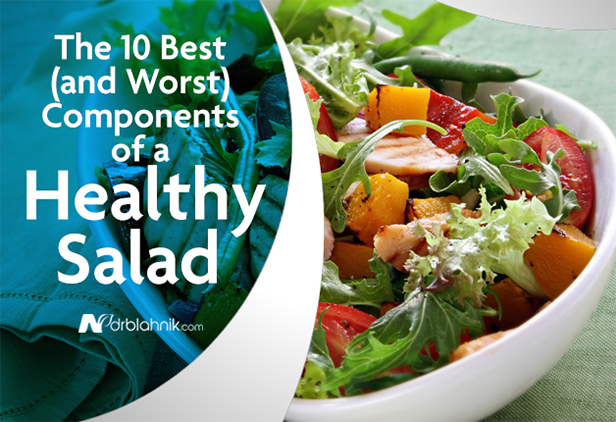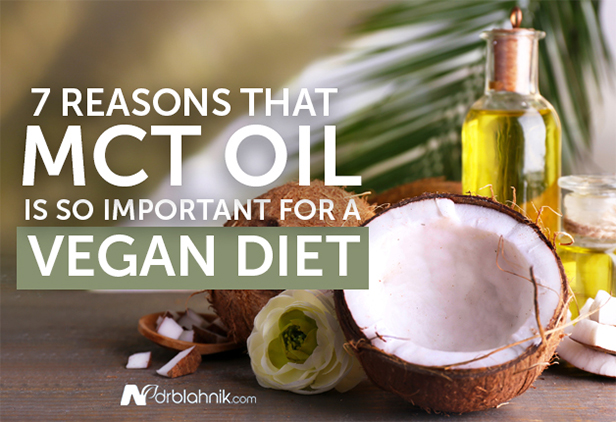Have you unleashed your beast or tried out your wings? That is, indulged in the energy drinks Monster or Red Bull? If you haven’t, you’re definitely out of the loop. Energy drinks sales are growing at the rate of 12% every year and are expected to reach over $9 billion by 2011: the market has grown by 440% from 2002 to 2007. 1 And sports drinks? Those caffeine-free and supposedly healthy hydrators? They sold to the tune of $7.5 billion in 2006.
2 Energy drinks were once favored by video gamers and adrenalin-sports junkies but today they’re a daily indulgence for school kids and working adults alike. The energy boost, mental alertness and caffeine buzz associated with energy drinks appeals to many people in our fast-paced culture and an increasing portion of the population are addicted to these legal drugs.
“We think energy drinks are the new coffee,” says SoBe marketing VP Scott Moffit. 5
Manufacturers aggressively market the beverages because, as Beverage Digest editor John Sicher says, “The [profit] margins are somewhere between excellent and obscene.” 5
The sports drink market now includes many alternatives to Gatorade: Vitaminwater and similar beverages are marketed to health-conscious people with skewed health claims.
“For years we’ve been programmed to believe that sports drinks are healthy and you need to replenish those electrolytes,” says Center for Science in the Public Interest’s (CSPI) Margo Wootan. 2
Sports drink manufacturers don’t have the caffeine to hook people with so increasingly, they’re adding unregulated herbs and other compounds that are perceived as healthy to boost sales.
It’s a functional food craze.
“Manufacturers cash in on that whole idea of functional foods, of creating different foods and beverages with supposedly special benefits, usually involving health, and then charging extra for them,” says nutritionist David Schardt.
But are they really healthy? The science doesn’t seem to say so.
CSPI brought a class-action lawsuit against Coca Cola for the misleading marketing and health claims it makes with its popular Vitaminwater line. 3 The names of the drinks themselves (Defense, Endurance, Rescue) imply health benefits that aren’t proven, says CSPI, and Coca Cola also claims that Vitaminwaters “reduce the risk of chronic disease and eye disease,” “promote healthy joints” and “support immune function.” 3
CSPI nutritionists say that “the 33 grams of sugar in each bottle of Vitaminwater do more to promote obesity, diabetes and other health problems than the vitamins in the drinks do to perform the advertised benefits listed on the bottles.” 3
A recent study, conducted by researchers at the University of California, has linked diabetes and heart disease to the ingestion of sugary sports drinks. 9 The scientists reviewed medical and diet data on adults over 35 during the years 1990 and 2000 and discovered that drinking sweetened drinks were associated with 130,000 diabetes cases and 14,000 coronary heart disease conditions. 9
The mega-doses of caffeine in energy drinks are linked to increasing incidences of caffeine overdose, emergency room visits and calls to poison control centers. 6
Australian researchers at the University of Adelaide have found that just one energy drink can significantly raise blood pressure, damaging blood vessels and increasing blood cell stickiness or clotting risk. 8
“Given the prolific use of these drinks within the young population,” says Dr. Scott Willoughby, more research is needed because the beverages increase the risk of heart attack and other heart conditions in fit and healthy people. 8
A dangerous trend is the combination of alcohol and energy drinks. Red Bull and Coca Cola’s functional beverages are routinely sold in bars and pubs. Sweden has banned energy drinks after 3 people died after imbibing them.
Two of the deaths occurred after the victims mixed Red Bull and vodka; the third after a man drank several cans of Red Bull after a strenuous workout. 7
University of Florida researchers have found that mixing energy drinks and alcohol increases the odds of intoxication by three times. 11 College students who blend the two are four times as likely to drink and drive. 11
Associate professor Dennis Thombs says that: “When caffeine is mixed with alcohol, it overcomes the sedating effects of alcohol and people perceive that they are less intoxicated than they really are.” 11
A North Carolina study published in Academic Emergency Medicine says that students that mixed alcohol and energy drinks are more likely to be injured or require medical treatment than those who drank alcohol alone. 6 They were also more likely to be involved in aggressive sexual behavior, either as perpetrators or victims. 6
University of Buffalo scientists have found that high consumption of energy drinks on their own—without alcohol—are linked with “toxic jock” behavior. 6 A toxic jock engages in aggressive and risky behaviors such as substance abuse, unprotected sex and violence. 6
Energy and sports drink producers aren’t willing to admit that they target youth in their marketing campaigns but the celebrities that sponsor such beverages range from popular skateboarders, surfers and race car drivers to music superstars and celebrity actors and actresses. Rockstar, JetSet and Playboy are examples of energy drink names that play up these associations and many celebrities have even come out with their own energy drinks.
Some people consider these drinks as “gateways” for alcohol and drug abuse in the young. They appeal to many young people as a means of getting a legal high from caffeine and sugar. Consider some of these energy drink names: Wired, Amp, Full Throttle, Jolt, Rush and Natural High.
The energy drink “Cocaine” doesn’t even attempt to play down this association. The company has been issued a warning by the FDA for marketing the drink “as an alternative to an illicit street drug.” 4
John Hopkins University professor Roland Griffiths says it’s “a terrible message. It has implications for drug use in the future.” 4
Along with Sweden, Argentina, Denmark, France and Norway have banned energy drinks because of their caffeine content. 5, 10
And hydration? The caffeine in energy drinks dehydrates rather than hydrates, making the association of energy drinks and sports a dangerous one.
Sports drinks are often sold in schools because they’re considered healthy beverages but dietician Lilian Cheung says that they’re really just sugar water with some added electrolytes. 12
“Unless they’re running marathons, which we do not recommend for kids, water is the best choice for quenching their thirst,” says Harvard researcher Steven Gortmaker. 12
A daily dose of the 10 teaspoons of sugar and 130 calories in the typical sports drink can add 13 pounds to a child every year, says Gortmaker. Unless a child exercises for more than two hours, no extra calories are needed says weight management expert Dr. Joanna Dolgoff. 12
Dr. Blahnik steps, if I were you…
- 1. Healthy Nerve System Function:Spinal Corrective Care Chiropractic (this is not pain management Chiropractic) adjustments to remove pressure and interference on the nervous system, paying particular attention to how the atlas (C1) is positioned against the brain stem.
- Hydrate properly with a minimum of ½ your body weight in ounces of water per day. (for example 100lbs / 2 = 50 ounces of water (H2O) per day.
- B-Complex 100 (3 times daily)
- Alkalize and energize by balancing your pH…drink Mega Organic Veggie Greens
- Cod Liver Oil: 1 Tbsp. for adults 150 lbs. or more, 2 tsp. 80-150 lbs., 1 tsp. 50-80 lbs.
- Eliminate grains and sugars: Replace them with vegetables and berries
- Eliminate Dairy: replace with coconut milk, almond milk or rice milk
- GET some Movement & Exercise: helps stimulate the brain and improves blood circulation to the brain. Circulation of oxygen dramatically improves with minutes of movement per day.
- Eliminate exposure to potential neurotoxins (such as lead, heavy metals, pesticides, herbicides) in the environment and many vaccines.
Sources
- Press Office (2007, Dec. 11). New Report Predicts Energy Drink Sales in the U.S. to Exceed $9 Billion by 2011. Report Buyer [online]. Retrieved from http://www.reportbuyer.com/press/new-report-predicts-energy-drink-sales-in-the-us-to-exceed-9-billion-by-2011/
- Organic Consumers Association (2007, Oct. 16). Are Sports Drinks Junk Food? Organic Consumers Association [online]. Retrieved from http://www.healthy.net/scr/News.aspx?Id=9472
- Geller, Martinne and Richwine, Lisa (2009, Jan. 15). U.S. Group Sues Coke Over VitaminWater Health Claims. Reuters [online]. Retrieved from http://www.reuters.com/article/idUSTRE50E54L20090115
- Shute, Nancy (2007, Apr. 15). Over the Limit? Americans young and old crave high-octane fuel, and doctors are jittery. US News [online]. Retrieved from http://health.usnews.com/usnews/health/articles/070415/23caffeine.htm
- Day, Sherri (2004, Apr. 4). Business; Energy Drinks Charm the Young and Caffeinated. New York Times [online]. Retrieved from http://www.nytimes.com/2004/04/04/business/business-energy-drinks-charm-the-young-and-caffeinated.html?pagewanted=2
- Parker-Pope, Tara (2008, May 27). Taste for Quick Boost Tied to Taste for Risk. New York Times [online]. Retrieved from http://www.nytimes.com/2008/05/27/health/27well.html
- BBC News (2001, Jul. 12). Red Bull in Suspected Link to Deaths. BBC News [online]. Retrieved from http://news.bbc.co.uk/2/hi/1435409.stm
- McGilvray, Annabel (2010, Feb. 2). Energy Drinks Raise Heart Alarm. ABC Australia [online]. Retrieved from http://www.abc.net.au/science/articles/2010/02/02/2808053.htm
- Vavoulis, Mark (2010, Mar. 11). Can Sports Drinks Cause Diabetes? Dr. Cutler [online]. Retrieved from http://www.drcutler.com/blood-sugar/can-sports-drinks-cause-diabetes-19657300/
- Penalty, Jeff (2010). A Brief History of Energy Drinks. Swindle Magazine [online]. Retrieved from http://swindlemagazine.com/issue06/a-brief-history-of-energy-drinks/
- University of Florida (2010, Feb. 2). UF researchers: Alcohol, energy drinks add up to higher intoxication levels, increased driving risk. University of Florida News [online]. Retrieved from http://news.ufl.edu/2010/02/10/energy-drink/
- Deardorff, Julie (2009, Sept. 15). Sports Drinks: Not Healthy for Kids. Chicago Tribune [online]. Retrieved from http://www.latimes.com/sns-health-kids-and-sports-drinks,0,4851090.story




